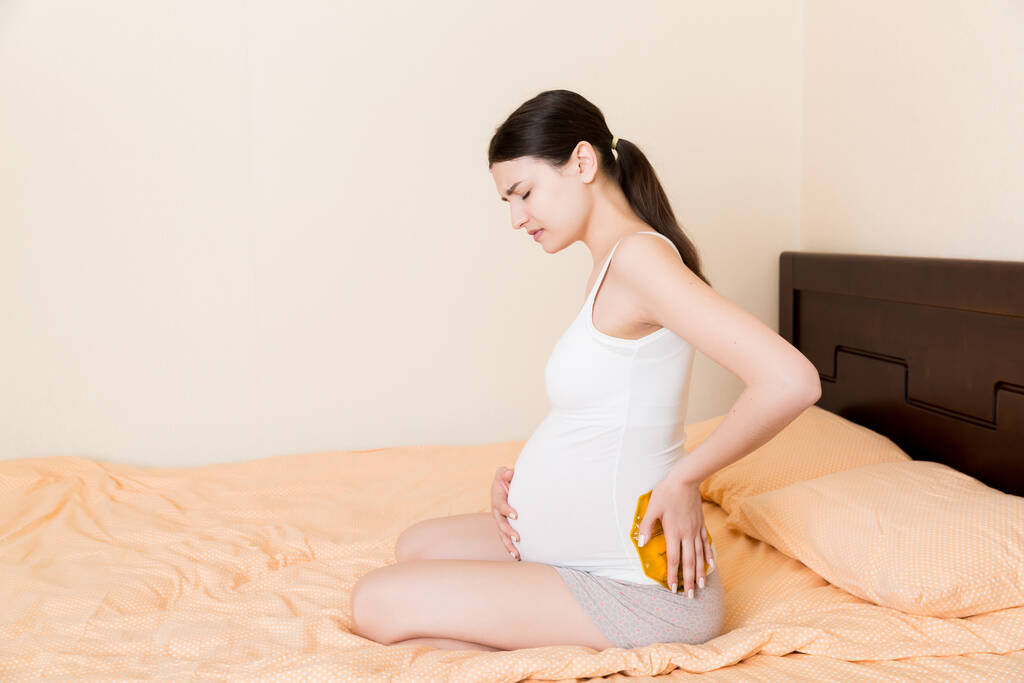Discover the truth about back pain during pregnancy. Find out if it’s a common experience for all women and learn effective ways to alleviate discomfort..
Does Everyone Experience Back Pain During Pregnancy?
Ah, the miracle of pregnancy! The joy of growing a tiny human inside you is unparalleled. But let’s keep it real for a moment, shall we? Pregnancy also brings a fair share of discomforts and challenges, and one that many women can relate to is back pain. So, does everyone experience back pain during pregnancy? Let’s explore this topic and find out!

Understanding Back Pain in Pregnancy
When it comes to back pain in pregnancy, knowledge is power. By understanding what causes it and how to alleviate it, you can make your nine-month journey a little more bearable. So, first things first, let’s dive into the anatomy of pregnancy-related back pain.
The Anatomy of Pregnancy-Related Back Pain
As your belly grows and your body adjusts to accommodate your developing baby, your center of gravity shifts forward. This change in your body’s alignment can put extra stress on your back, leading to discomfort.
But what exactly happens to your spine during pregnancy? Well, let’s take a closer look. The spine is made up of a series of bones called vertebrae, which are stacked on top of each other. These vertebrae are connected by small joints called facet joints, and in between them are cushion-like discs that act as shock absorbers. During pregnancy, the growing uterus and the weight of the baby can cause the spine to curve more than usual, putting pressure on these facet joints and discs.
Additionally, the pregnancy hormones relaxing and progesterone can loosen the ligaments and joints in your pelvic area. While this is essential for the childbirth process, it can also affect the stability and alignment of your spine, contributing to back pain.
Common Causes of Back Pain During Pregnancy
Now that we know the basics, let’s uncover the common culprits behind that annoying back pain. One of the primary causes is the added weight you’re carrying around. It’s like having a growing backpack attached to your front! No wonder your back needs a little extra love.
But weight alone isn’t the only factor. Poor posture can also play a significant role in pregnancy-related back pain. As your belly grows, it can be tempting to slouch or lean back to compensate for the extra weight. However, this can put additional strain on your back muscles and exacerbate the discomfort.
In addition to weight and posture, muscle imbalances can contribute to back pain during pregnancy. As your uterus expands, it can cause certain muscles, such as the abdominal muscles, to stretch and weaken while others, like the lower back muscles, have to work harder to support your growing belly. This imbalance can lead to muscle fatigue and discomfort.
Furthermore, the strain that comes with daily activities while pregnant can also contribute to back pain. Lifting heavy objects, even if it’s just a grocery bag or a toddler, can put excessive stress on your back muscles. Similarly, standing for extended periods without taking breaks to rest can cause muscle fatigue and discomfort.
Now that you have a better understanding of the anatomy and common causes of back pain during pregnancy, you can take proactive steps to alleviate and prevent it. Remember to practice good posture, engage in regular gentle exercises that strengthen your core and back muscles, and listen to your body’s signals to rest when needed. By taking care of your back, you’ll be able to enjoy your pregnancy journey with less discomfort and more joy.
The Prevalence of Back Pain in Pregnant Women
You might be wondering if you’re the only one experiencing this discomfort, but fear not! Back pain during pregnancy is more common than you might think. Let’s take a look at some enlightening statistics.
Being pregnant is a beautiful and transformative experience, but it can also come with its fair share of challenges. One of the most common challenges that pregnant women face is back pain. It’s a discomfort that can range from mild to severe and can significantly impact a woman’s daily life.
Studies show that approximately 50 to 80 percent of pregnant women experience back pain at some point during their pregnancy journey. So, if you feel like you’re not alone, it’s because you’re not! It’s a shared experience among many expectant mothers.
Now that we know how prevalent back pain is in pregnant women, let’s delve deeper into the factors that can influence the severity and frequency of this discomfort. These factors can vary from woman to woman and play a significant role in determining the extent of back pain experienced during pregnancy.
Factors Influencing Back Pain in Pregnancy
Age is one factor that can influence the likelihood of experiencing back pain during pregnancy. Older expectant mothers may be more prone to back pain due to the natural aging process, which can lead to a decrease in muscle strength and flexibility.
Pre-existing back conditions can also contribute to the severity of back pain during pregnancy. Women who had back problems before becoming pregnant may find that their symptoms worsen as their bodies undergo the physical changes of pregnancy.
Weight gain is another factor that can impact back pain. As the baby grows and the mother’s body adjusts to accommodate the growing fetus, the added weight can put strain on the back and spine, leading to discomfort.
Lifestyle choices can also play a role in back pain during pregnancy. Women who lead sedentary lifestyles or engage in activities that put excessive strain on the back, such as heavy lifting or prolonged sitting, may be more susceptible to experiencing back pain.
It’s important to note that while back pain during pregnancy is common, it doesn’t have to be inevitable. There are various measures that expectant mothers can take to alleviate and prevent back pain, such as practicing good posture, engaging in regular exercise tailored for pregnancy, and seeking professional guidance from healthcare providers.
So, if you’re currently experiencing back pain during your pregnancy, know that you’re not alone. Many women have walked this path before you, and with the right support and self-care, you can find relief and continue to embrace the beautiful journey of motherhood.
Different Types of Back Pain Experienced in Pregnancy
Not all back pain is created equal, my pregnant friends. Let’s take a closer look at the variety of ways your precious back can let you know it needs some attention during this incredible journey.
As your body goes through the beautiful process of creating life, it’s no surprise that you might experience some discomfort along the way. One of the most common types of back pain reported by expectant mothers is lower back pain. This type of discomfort usually manifests as a dull ache or sharp pain in your lower back, making it harder to find a comfortable position to sit, stand, or sleep.
Imagine trying to enjoy a peaceful night’s sleep, only to be constantly reminded of your growing belly by the persistent ache in your lower back. It’s like a gentle reminder from your body that it’s working hard to accommodate the new life blossoming within you.
Lower Back Pain in Pregnancy
Ah, the classic lower back pain! This type of discomfort is most commonly reported by expectant mothers. It usually manifests as a dull ache or sharp pain in your lower back, making it harder to find a comfortable position to sit, stand, or sleep.
As your baby bump grows, the weight distribution in your body changes, putting extra pressure on your lower back. This can lead to muscle strain and tension, causing that all-too-familiar ache. It’s like your body’s way of reminding you to take it easy and give yourself some well-deserved rest.
But fear not, dear mama-to-be! There are ways to alleviate this discomfort. Gentle exercises, such as prenatal yoga or swimming, can help strengthen your back muscles and improve your posture. Additionally, using a pregnancy support belt can provide some much-needed relief by taking the pressure off your lower back.
Sciatica During Pregnancy
Sciatica is like that uninvited guest at a baby shower. It can occur during pregnancy and causes pain that radiates from your lower back to your buttocks and down your leg. Talk about gatecrashing the pregnancy party!
Imagine trying to waddle your way through the day, only to be met with shooting pain that travels from your lower back, down your buttocks, and all the way to your leg. It’s like a lightning bolt of discomfort that can catch you off guard.
Sciatica during pregnancy occurs when the growing uterus puts pressure on the sciatic nerve, which runs from the lower back down to the legs. This compression can cause inflammation and irritation, resulting in the characteristic pain.
While dealing with sciatica during pregnancy can be challenging, there are ways to find relief. Gentle stretching exercises, such as pelvic tilts and cat-cow poses, can help alleviate the pressure on the sciatic nerve. Additionally, applying heat or cold packs to the affected area and practicing good posture can provide some temporary relief.
Remember, dear mama, you are not alone in experiencing these types of back pain during pregnancy. It’s a natural part of the journey, and your body is simply adjusting to the beautiful changes happening within. Take care of yourself, listen to your body, and don’t hesitate to seek support from healthcare professionals if needed.
How to Alleviate Back Pain During Pregnancy
Now that we’ve covered the ins and outs of pregnancy-related back pain, it’s time to take action! Here are some practical tips to help you find relief and make your pregnancy journey a little more enjoyable:
Safe Exercises for Back Pain Relief
Staying active during pregnancy can work wonders for alleviating back pain. Water exercises, prenatal yoga, and gentle stretches can help strengthen your muscles and improve flexibility, easing the strain on your back. Just make sure to consult with your healthcare provider before starting any exercise regimen.
The Role of Prenatal Yoga in Easing Back Pain
Prenatal yoga is not only a great way to stay fit during pregnancy but also a potent tool for easing back pain. It can improve posture, enhance relaxation, and provide gentle stretches that target your back muscles. Plus, it’s a fantastic opportunity to connect with other expectant moms and share your pregnancy journey.
Medical Interventions for Pregnancy-Related Back Pain

While most pregnancy-related back pain can be managed with lifestyle adjustments and non-invasive techniques, there are instances where medical interventions may be necessary. Let’s explore when it might be time to seek additional help and the available treatment options.
When to Seek Medical Help
It’s crucial to listen to your body and seek medical assistance if your back pain becomes severe, persistent, or is accompanied by other concerning symptoms. Your healthcare provider can help determine the underlying cause and recommend the most suitable course of action.
Treatment Options for Severe Back Pain
In severe cases where conservative methods aren’t providing sufficient relief, your healthcare provider may suggest alternative treatments such as physical therapy, prenatal massages, or even safer medication options for expectant mothers.
Remember, each pregnancy is unique, and what works for one person may not work for another. The key is to be proactive, communicate with your healthcare provider, and tailor your approach based on your individual needs.
It’s a Shared Journey
So, does everyone experience back pain during pregnancy? While the answer may not be a resounding ‘yes’ for every woman, it’s undoubtedly a widespread issue that many moms-to-be face. The good news is that with the right knowledge, self-care, and support, you can navigate your pregnancy with fewer backaches and more joy.
Remember, mama, you’re growing a beautiful life inside you, and that’s no small feat. Embrace the journey, take care of yourself, and remember that you’re not alone in this adventure called pregnancy!



